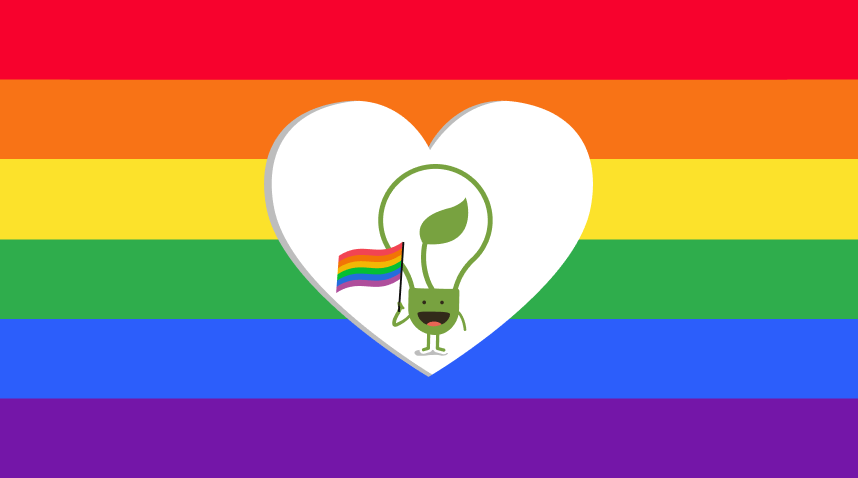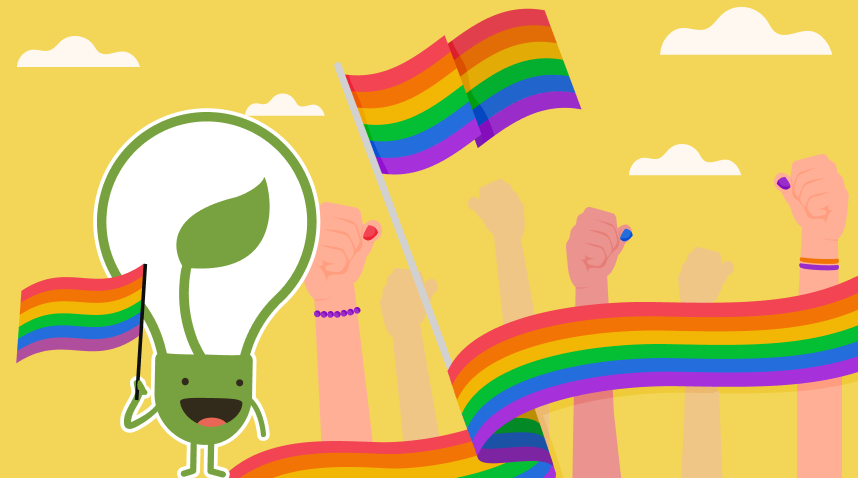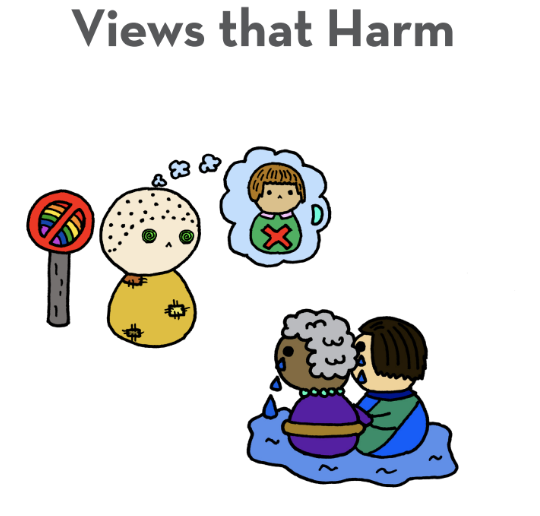
Buddhist Pride: Practicing the Brahmavihārās with the LGBTQIA+ community
TLDR: The Brahmavihārā are more accessible than you realise. Read on to find ideas on how to practice them in your daily life. Learn more about the author’s first-hand experience of the LGBTQIA+ Buddhist community, Rainbodhi Singapore.
When we think of the Brahmavihārā, or the Divine Abodes, we may think of this heavenly state of mind, as something that exists only when you are able to achieve the elusive and hard-to-attain states of mind called Jhāna.
As human beings, we naturally crave happiness and shun suffering, hence I too have been chasing the elusive happy state of mind. While on a meditation retreat, I chanced upon the practices of the Brahmavihārā, and I was able to achieve a taste of the pleasant states of mind, which has been alluded to as living like Heaven on Earth.
Who would not want that experience?
The practice of the Brahmavihārā can also help us better manage our emotions when dealing with the 8 worldly concerns in our daily life. And you can have a taste of the Brahmavihārā without going through an intensive meditation retreat.
Here, I would like to share my experience, of encountering the 4 Brahmavihārā of Mettā – Lovingkindness; Karuṇā – Compassion; Muditā – Appreciative Joy; and Upekkhā – Equanimity, in the Rainbodhi Singapore* community here. And, how you can practice the 4 Brahmavihārā in your own daily life.
I faced anxiety and dread in my first meeting with the Rainbodhi Singapore community, as discrimination and judgment can sadly occur even within the LGBTQIA+ community.
Internalised homophobia hurt members of the LGBTQIA+ community. As a minority, an outsider, and a non-local, I face challenges in finding a safe space across communities. Fortunately, my experience with the Rainbodhi Singapore community is different.
Mettā – Lovingkindness:
As I walked and panted up the steps at Fort Canning Park for Rainbodhi Singapore’s first monthly picnic, I kept wondering to myself if I should turn away. As this could be a potentially socially awkward event for the shy, introverted me.
Yet, I told myself that, I already came so far, and I should just show up. Showing up is half the battle won, I often remind my friends, that I should practice what I preach.
As I inch closer to the picnic site, from afar, I saw the smiley and happy face of Kyle Neo, the founder of Rainbodhi Singapore, waving his welcoming hands at me.
Kyle’s face radiated so much lovingkindness and friendliness that it melted away my fear and doubt about this meeting.
It was still early and there was just another person, Koh An Ding, at the picnic, but seeing her smile and nod happily as I approached the picnic mats further welcomed me into this new community for me.
What did I learn from these simple gestures from two relative strangers? Lovingkindness can manifest itself in a friendly smile or nod, making a world of difference to those around you. We can spread Mettā around us, getting on the bus, a smile, or a nod at the bus driver. If you try, this can enormously impact everyone’s life.
Karuna – Compassion:

Continuing my picnic story, being part of a community is key.
We self-identify as members of the Rainbow community. This shared identity allows us to understand and connect with one another easily, even if it is our first meeting.
And this allowed me to open up about the challenging work experience that I was going through at that moment in time. Being heard and being seen by my new friends, I felt the wave of compassion washing over me, not because I am part of the minority group, but because I am a fellow human being, who is experiencing pain and suffering in life, at the workplace.
Compassion – bearing witness to another suffering, does not take away their pain, but it strengthens the bond of humanity when we recognize the 1st Noble Truth – that “There is Suffering”, and that we are not alone in the broad theme of “Sufferings of the World.” You can relieve the suffering of important people or even strangers, by just lending your listening ear.
Muditā – Appreciative Joy:
The repeal of Section 377A in Singapore, the law that criminalises sex between men, was officially repealed in November 2022, and I witnessed much joy and appreciation within the Rainbodhi Singapore community.
However, there is much left wanting by the community in terms of freedom and understanding from broader society. At times, some members of the community feel it is up against an ongoing slew of oppressive expectations and stereotypes.
Nevertheless, this does not stop one from rejoicing in the success and freedom of any groups within the rainbow community.
Living our life on a hedonic treadmill, we feel that we must constantly chase after happiness, to constantly get the dopamine kick, the feel-good chemical spark in our brain. And that can be a challenging thing to happen in our life.
Just like playing your favourite mobile game, levelling up to the Beginner’s level is so much easier and faster than trying to level up to the Expert’s level instead.
Hence, trying to seek happiness and joy to happen in our life would be frustrating, because it would be further and fewer in between.
How about trying this instead?
How about in our daily life, you choose to rejoice in others’ happiness, and you can multiply the joys in your life much easier and faster.
This provides an ongoing stream of happiness, joy, and gratitude to come into our life, not dependent on good news happening to us alone, but also builds upon the goodness that showers on others.
I always wonder if this is one of the secrets of the happy monks and nuns that we see in temples and monasteries when they are constantly rejoicing in laypeople and fellow monastic goodness, that they can stay perpetually happy.
Upekkhā – Equanimity:

While there is a win for LGBTQIA+ rights with the repeal of Section 377A, it also comes with the news of the amendment to the Constitution with the intent to protect the definition of marriage, to narrowly define it between the marriage of a man and a woman.
It creates the split feeling of a win (with the repeal of Section 377A), yet a loss (with the greater restrictions of the marriage definition), banning the possibility of same-sex marriage in Singapore, for now.
Some members of the Rainbodhi SG community encourage calm and patience, in securing greater gains for the LGBTQIA+ community, over time.
To me, it is a good example and portrayal of Equanimity, in the face of the mixed wins and losses in life. Trying to stay balanced amid the salad mix of emotions is what the practice of Equanimity calls for.
In our life, we may be shocked and overjoyed with the different ranges of emotions that may come up, when faced with different life events. And given enough time, we find that the initial emotions usually wear down and become less intense.
Hence, I would say that we all have practised Equanimity in our life, more than we realised. Just give it time, for time will heal all wounds. Khanti (Patience) is one of the 10 Pāramī (Perfections) that are encouraged to be developed after all.
Conclusion:

June is typically celebrated as Pride Month. Finding Rainbodhi’s community has been a joyful experience. I hope this inspires more LGBTQIA+ Buddhists and allies to learn and join Rainbodhi Singapore’s activities. Do explores your own ideas on how you can further practice the Brahmavihārā in a practical way in your daily life.
Wish to find out more? You can visit the Rainbodhi Singapore website here or join the Telegram group for event updates here.
Wise Steps:
- You can be creative and innovative in practising Loving-kindness, Compassion, Appreciative Joy, and Equanimity in your daily life.
- You can deepen your practice of Lovingkindness and Compassion towards the under-represented community in Singapore, such as the LGBTQIA+ community in this Pride month and beyond.
Note:
* For those unfamiliar with Rainbodhi Singapore, this is the community of Buddhist practitioners in Singapore, who also identify as members or allies of the LGBTQIA+ community.



